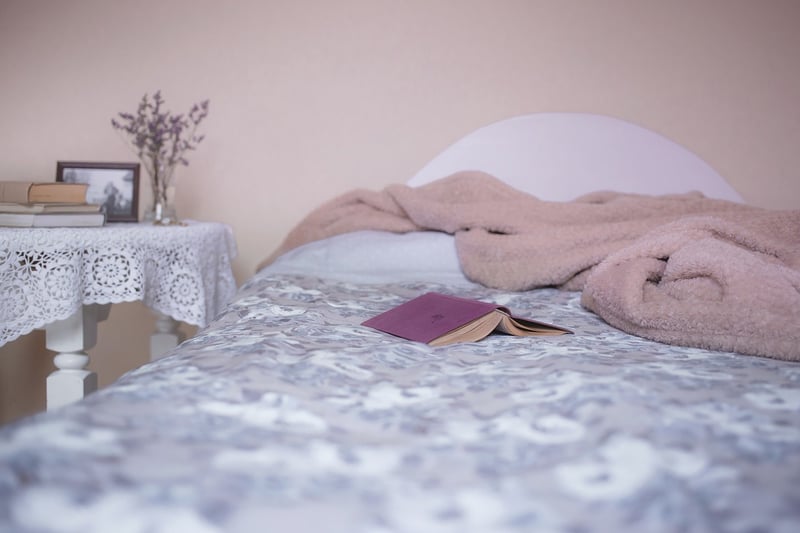Bedtime Routine
Improving Sleep Patterns: Establishing a Healthy Bedtime Routine

Sleep is essential for overall well-being, yet many people struggle to get a good night's rest. Establishing a healthy bedtime routine can significantly improve your sleep patterns and quality of sleep. Here are some tips to help you create a relaxing bedtime routine:
1. Set a Consistent Sleep Schedule
Try to go to bed and wake up at the same time every day, even on weekends. This helps regulate your body's internal clock and can improve the quality of your sleep.
2. Create a Relaxing Environment
Make your bedroom a peaceful oasis by keeping it dark, cool, and quiet. Consider using earplugs, an eye mask, or white noise machines to block out distractions.
3. Limit Screen Time Before Bed
Avoid electronic devices such as smartphones, tablets, and computers at least an hour before bedtime. The blue light emitted by screens can interfere with your body's production of melatonin, a hormone that regulates sleep.
4. Wind Down Before Bed
Engage in relaxing activities before bedtime, such as reading a book, taking a warm bath, or practicing deep breathing exercises. This can signal to your body that it's time to unwind and prepare for sleep.
5. Avoid Stimulants and Heavy Meals
Avoid consuming caffeine, nicotine, and heavy meals close to bedtime, as they can disrupt your sleep. Opt for herbal tea or a light snack if you're hungry before bed.

6. Stay Active During the Day
Regular physical activity can improve the quality of your sleep. Aim for at least 30 minutes of exercise most days of the week, but avoid vigorous exercise close to bedtime.
7. Practice Relaxation Techniques
Try relaxation techniques such as meditation, yoga, or progressive muscle relaxation to help calm your mind and body before bedtime. This can reduce stress and promote better sleep.
8. Consult a Healthcare Professional
If you continue to have trouble sleeping despite trying these strategies, consider consulting a healthcare professional. They can help identify underlying issues and provide personalized recommendations for improving your sleep.
By incorporating these tips into your bedtime routine, you can establish healthy sleep patterns and enjoy a restful night's sleep.
